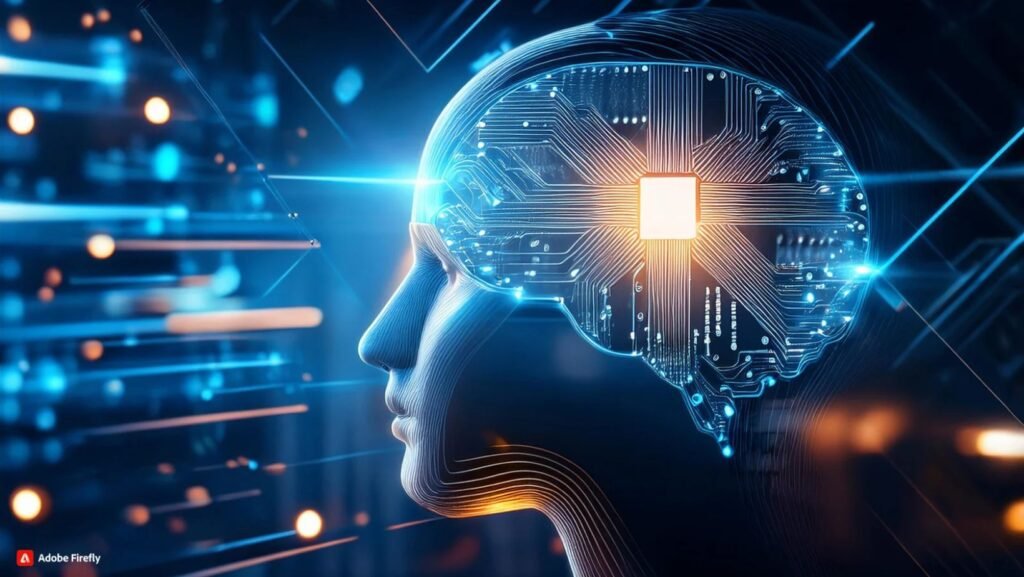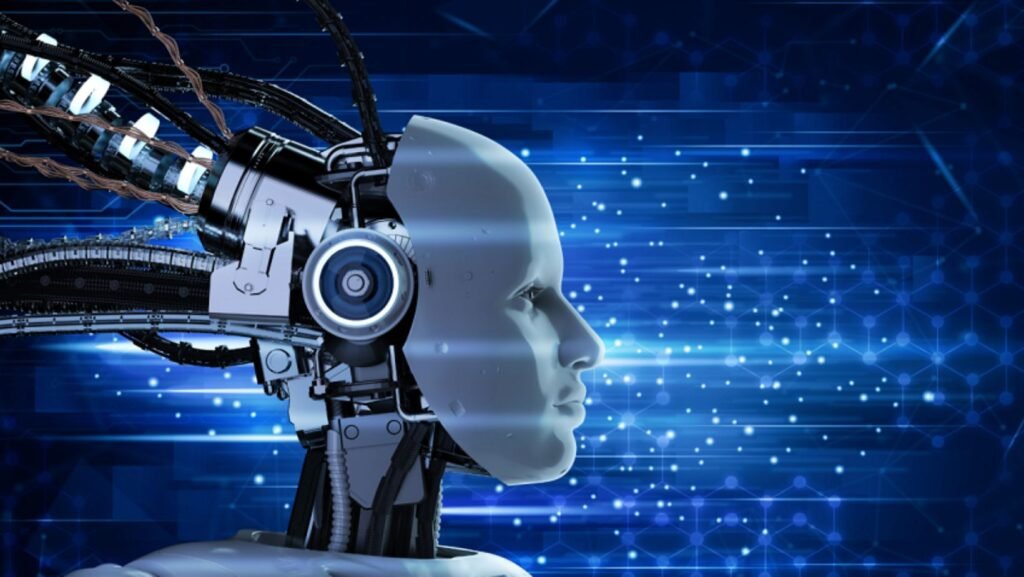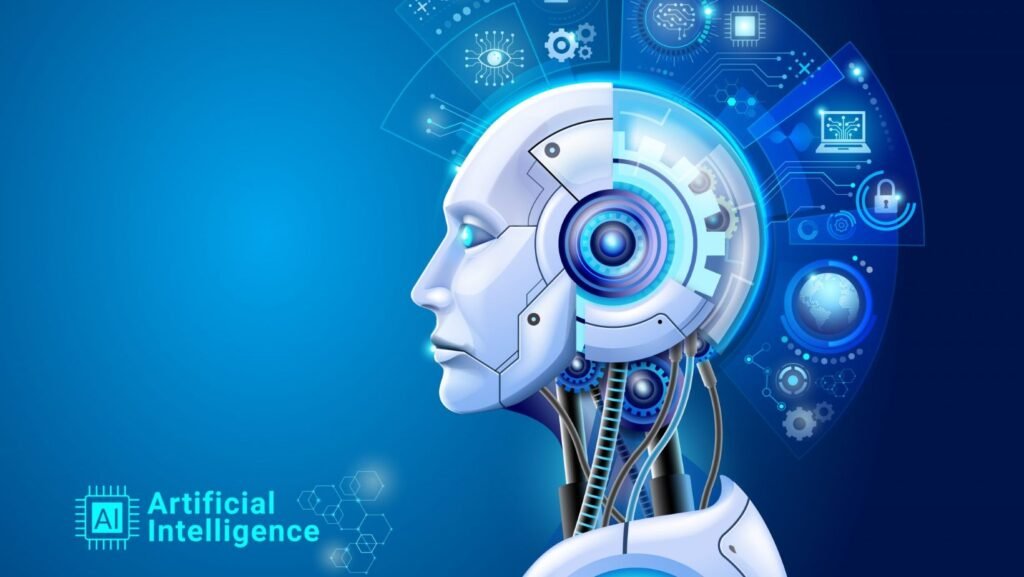Table of Contents:
Introduction
What is a General Purpose Technology (GPT)?
AI as a General Purpose Technology
Economic Impact of AI as a GPT
AI in Different Industries
Technological Advancements in AI
Challenges in AI Development
The Future of AI as a GPT
FAQs
Conclusion
Introduction
The Future Revolution Artificial Intelligence as a General Purpose Technology Artificial Intelligence is one of those burgeoning 21st-century technologies that can be described as being broad-grounded, like electricity and the internet, and serves as a General Purpose Technology. Artificial Intelligence Revolutionizing healthcare, finance, manufacturing, and education; driving invention, robotization, and profitable growth. The blog will address how AI is a GPT, profitable and social counteraccusations being challenges and the unborn possibilities for AI to transfigure the world.
Key Takeaways:
- Transformative Power: AI is one of the most significant technological advancements, impacting numerous industries and potentially reshaping the global economy.
- Economic Growth: By 2030, AI could contribute up to $15.7 trillion to the global economy, enhancing productivity and driving innovation across multiple sectors.
- Versatility: AI’s applications span diverse industries such as healthcare, finance, manufacturing, retail, and education, making it a true General Purpose Technology.
- Challenges to Overcome: AI presents challenges, including ethical concerns, job displacement due to automation, and the need for stringent data privacy and regulatory measures.
- AI and the Future: As AI evolves, it will integrate with other emerging technologies, such as IoT and quantum computing, and play a key role in solving global issues like climate change and resource management.
- Future-Proofing: Businesses and governments must invest in AI, reskilling workers, and developing clear policies to maximize AI’s benefits and minimize potential risks.
What’s General Purpose Technology( GPT)?

A General Purpose Technology is an invention that can revise frugality. GPTs are characterized by their inflexibility, capability to make an invention, and the capability to introduce new diligence. Some former exemplifications include the brume machine, electricity, and the internet.
- AI is classified as a GPT due to the following reasons
- transfigure the colorful diligence at large
- Allow the generation of new products and services.
- Promote effectiveness through robotization and data analysis.
- AI as a General Purpose Technology Economic goods
AI is bound to have a massive profitable effect. According to PwC, AI is anticipated to add$ 15.7 trillion to the world’s frugality by 2030. The motivation for this profitable growth stems from AI’s capacity to ameliorate effectiveness, make consumer goods more, and establish newer diligence.
profitable benefactions of AI
Productivity Earnings AI- driven robotization helps businesses streamline and reduce cost of operations.
- Demand from guests: AI-driven inventions with particular sidekicks, smart homes, ande-commerce websites produce gests that elevate consumerism.
- Assiduity dislocation: AI can dramatically alter traditional business models, especially in manufacturing, transport, and logistics operations of AI across diligence.
- AI’s capabilities: Allow it to find operations indeed in diligence as supposedly unconnected as healthcare and education. Then are some of the stylish operations for AI.
AI operations in Healthcare
Healthcare and AI are changing the face of patient care and medical exploration. AI makes better judgments , provides more targeted treatment plans grounded on individual requirements, and optimizes operations. A report by Accenture argued that by 2026, the assiduity would save USD 150 billion every time through operations of AI in healthcare.
- Diagnostics: AI systems analogous to that of IBM’s Watson checkup huge quantities of data, which enables individual delicacy in conditions like cancer.
- Robotic Surgery: Surgeries are also performed with delicacy and effectiveness with AI- supported robots, with quicker recovery time.
- Prophetic Analytics: AI algorithms can prognosticate issues, therefore paving way for preemptive intervention
AI in Finance
The fiscal sector espoused AI for enhancing their opinions, perfecting client services, and fraud discovery. A report by Deloitte in 2022 showed that 76 of fiscal associations use AI to enhance threat operation.
Automated Trading An AI algorithm predicts the request trend and does the trade at the stylish time.
Fraud Detection AI models dissect deals for the real- time identification of fraud conditioning.
client Service AI has given instant chatbots that have enhanced the experience of the customer and led to a advanced position of client satisfaction.
AI in Manufacturing
AI is transubstantiating manufacturing with prophetic conservation, quality control, and force chain optimization. According to a report from McKinsey, AI can help 20- 30 of manufacturing time-out as well as drop material cost by over to 5- 10.
Prophetic conservation AI systems track outfit and can prognosticate probable breakdowns.
force Chain Optimization AI algorithms optimize force chains through demand soothsaying, assaying force and request trends.
AI in Education
AI is transubstantiating literacy by furnishing personalized literacy gests , automating routine executive tasks, and making it accessible for scholars. The HolonIQ report estimates that AI in the education sector will reach$ 6 billion by 2025.
individualized literacy The AI- grounded platforms similar as Coursera and Duolingo befriend pupil learning styles and conditions.
Automated Grading AI cuts the executive burden of grading assignments.
Availability AI- powered tools work towards making it more accessible for scholars with disabilities.
Challenges of AI as General Purpose Technology

Though AI has important eventuality in its stride, there are certain material challenges that have to be addressed. Among them are enterprises about ethics, job relegation, and data sequestration.
Ethics
AI raises ethical questions- substantially when it comes to translucency of opinions made and responsibility for decision- timber. utmost concerning is bias. For case, Amazon was forced to scrap its AI reclamation tool after it was determined that the system revealed impulses against womanish aspirants. To deal with these issues, there live ethical fabrics that are being developed for AI.
Job relegation
Major pitfalls for jobs, especially on manufacturing and transport, include AI- driven robotization. It’s estimated that between 20 million manufacturing jobs will vanish by 2030 due to robotization, as prognosticated by Oxford Economics. artificial intelligence general purpose technology.
Data sequestration
As AI systems depend on huge volumes of data, they also raise questions about sequestration. The Cambridge Analytica reproach brought that to the fore. Governments are using laws like the GDPR to collect particular data and insure this kind of protection.
Future of AI What Lies Ahead?
The future of AI is bright as a General Purpose Technology. Developments in machine literacy, natural language processing, and robotics are only going to give AI more areas where its capabilities and operations can be developed.
prognostications of Development in AI
Increased Use of AI with IoT AI is going to be further to bridge the technological gap as device makers and IoT unite to offer further intelligent homes, metropolises, and diligence.
Ethics in AI Just like AI would play a bigger part, ethics in AI operation would be at larger significance for guaranteeing fairness and translucency.
AI operation in Climate Change Mitigation AI’ll be the game- changer in all that’s directed towards climate change. It’ll do everything from optimizing energy consumption to making natural disaster prognostications.
FAQs

Why is AI a GPT?
AI has serious counteraccusations for numerous diligence, drives business invention, and therefore inspires massive profitable growth.
How does profitable impact AI as a GPT?
AI’ll probably add$ 15.7 trillion to the world’s frugality in terms of productivity gain, invention, and robotization by 2030.
In what way does AI impact health and finance diligence?
AI is transubstantiating healthcare by making diagnostics, treatment, and prophetic analytics more. In finance, it works to ameliorate threat operation, discovery of fraud, and client service.
What are the challenges in enforcing AI?
The crucial issues linked include ethics problems, job relegation, and data sequestration.
What are the openings for AI in the future as a General Purpose Technology?
AI’ll continue advancing in the future. Some of the anticipated earnings include further IoT integration, robust ethical fabrics, and consummation of climate change mitigation.
How does AI affect employment?
Indeed though AI would go a long way in creating tremendous new job openings, it’s still anticipated that millions of jobs will be displaced with being jobs in manufacturing are among the further frequent.
Conclusion
Artificial Intelligence, as GPT, has a certain kind of position whereby it would change diligence, transfigure processes, and goad great profitable exertion. It’s protean, continues to ameliorate itself, and is applied in so numerous areas that it has been compared to and likened to similar inventions as electricity and the internet. still, more important aspects would be ethical enterprises, job relegation, and implicit data sequestration issues. Hence, AI use must be achieved responsibly in order to realize its full eventuality. In this regard, the part of AI in mapping unborn business, societal, and profitable realities shall come ever more central. artificial intelligence general purpose technology.

